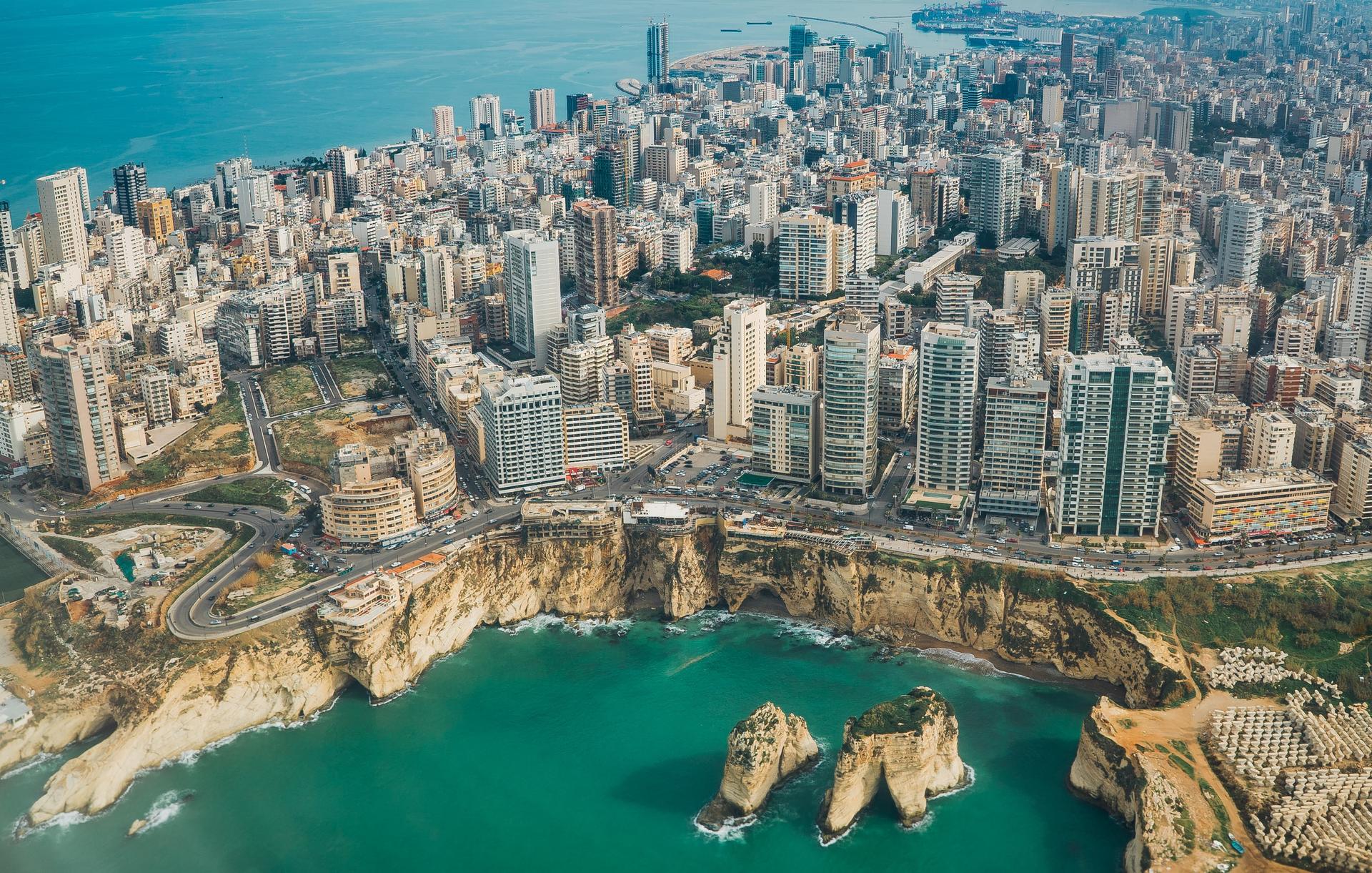Lebanon🇱🇧

Lebanon, officially known as the Lebanese Republic, is located in the East Mediterranean region of Asia. Bordered by Syria to the North and East, and Israel to the South, it's cradled by the Mediterranean Sea on its Western side. Lebanon has a rich, complex history and is known for its diverse culture, cuisine, and natural beauty. It's landscape spans from the vibrant cityscape of Beirut, to the historical ruins of Baalbek, and the snow-capped mountains of the Qadisha Valley. The country has a known tradition of hospitality and its cuisine, a mix of Mediterranean and Middle Eastern flavors, is globally renowned. The Jeita Grotto cave system, the ancient city of Byblos and the Roman Baths are among the must-see attractions in Lebanon.
⚠️Things you should avoid⚠️
- Avoid visiting refugee camps or volatile areas along the Syrian and Israeli borders.
- Avoid drinking tap water; opt for bottled or purified water instead.
- Avoid traveling alone at night, particularly in unfamiliar areas.
- Avoid carrying large amounts of cash due to pickpocketing risks.
- Avoid expressing public support for either Israel or Hezbollah.
- Avoid political demonstrations and gatherings due to the risks of violence.
- Avoid unauthorized or unregulated taxi services.
- Avoid disrespectful behaviour at religious sites.
- Avoid disregarding traffic laws; Lebanese roads can be hazardous.
- Avoid any non-essential travel to the city of Tripoli due to recent violence.
Overall
4
Crime 🔫
4
Lebanon's crime rate is relatively high with incidences of theft and assault being common, especially in the areas of Tripoli and Bourj Hammoud. Violence might stem from political unrest. However, the crime rate varies regionally. It's advised to take safety precautions, particularly at night.
Terrorism 💣
2
Incidents of terrorism have been recorded in Lebanon, particular in the vicinity of the Syrian border due to tensions between Hezbollah and militant groups in Syria. Specifically, in November 2015, a series of explosions in Beirut's southern district, a stronghold of the militant group Hezbollah, claimed at least 43 lives.
War ⚔️
3
The country has a history of civil war and armed conflict, the last major one ending in 1990. However, sporadic violence and conflicts continue, mainly due to political tensions and the spillover from the Syrian conflict.
Natural Disasters 🌊
5
Lebanon is at risk for several natural disasters, including earthquakes and forest fires. A notable event was the 551 Beirut Earthquake that caused massive destruction.
Medical Care 🏥
6
Healthcare facilities in Lebanon are adequate with highly trained medical staff. However, the economic crisis, worsened by the COVID-19 pandemic, has put immense pressure on the healthcare sector.
Tap Water Quality 💧
3
Tap water in Lebanon is not considered safe to drink. Bottled water is widely available and recommended for consumption.
Disease Burden 🤒
5
The disease situation in Lebanon is middling with prevalent diseases including Hepatitis A and B, Typhoid and Rabies. The 2020 COVID-19 pandemic also hit the country hard.
Corruption 💸
2
Lebanon has high corruption levels. The country has witnessed mass protests against political corruption, such as the 2019-2020 protests sparked by an economic crisis.
Safety for Women ♀️
4
While Lebanon is relatively safe for travelling women, instances of sexual harassment can occur. It is advised for women to dress modestly and avoid travelling alone at night.
Safety for Queer People 👬
3
While same-sex activity is technically legal in Lebanon, social attitudes towards LGBTQ+ individuals can be negative, with instances of discrimination.
Censorship 📺
3
There is moderate censorship in Lebanon, including occasional internet shutdowns, and some press and cultural censorship.
Public Transportation 🚌
5
Public transportation exists in Lebanon but it's not well-structured or reliable. There can be safety concerns particularly for women.
Other useful information
🔒 How safe is it?
Safety in Lebanon heavily relies on the current political climate and region. Instances of crime, terrorism and political unrest are observed. Stick to recommended tourist areas and stay updated with local news. Ensure to respect local customs and laws.
🏰 Embassies in this Country
Lebanon houses several embassies including those of the US, UK, Germany, France and Canada. Most are located in the capital, Beirut.
💉 Recommended Vaccinations
Recommended vaccinations for Lebanon include Hepatitis A, Hepatitis B, Typhoid, Rabies, and routine vaccines.
🐍 Dangerous Animals
Dangerous animals in Lebanon include foxes, bats, dogs and cats, which may carry rabies, and various types of venomous snakes in rural areas.
🛂 Visa Requirements
Most Western nationals get a one-month visa on arrival at Beirut’s Rafic Hariri International Airport and at some land borders.
💲 Currency
Lebanese pound (LBP) is the local currency. Currency can be exchanged at banks, exchange offices and major hotels.
💳 Credit Card Acceptance
Major credit cards are generally accepted in hotels, restaurants and larger shops. ATMs are widely available, but cash is often preferred due to economic turmoil.
🧑🏭 Is it possible to work and travel in this country?
Given the current political and economic instability, Lebanon is not ideal for work and travel, and job opportunities for foreigners are limited.
💵 Cost of Travel and Living
Cost of travel and living in Lebanon depends on personal lifestyle and location. Beirut is more expensive than rural areas.